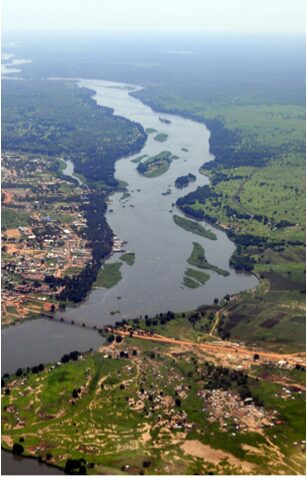Trade and Financial Service Round-Up Vol 43

Kenya
Local investor activity climbs at NSE, foreigners retreat
Local investors have gained prominence at the Nairobi Securities Exchange (NSE) over the past three months, reflecting reduced activity by their offshore counterparts in the market even as investment conditions improved abroad. Market data shows that local investors have accounted for 59% of all traded turnover in the period and foreigners 41%, reversing the trend seen in the first and second quarters of the year, when foreigners accounted for 60.3% and 57.3% of trades at the NSE. The reduced overall turnover at the NSE in the period indicates that local investors largely maintained their activity levels rather than stepping into the breach left by foreigners. Traded turnover in the third quarter fell to Sh17.6 billion from Sh28.4 billion in the second quarter and Sh19.1 billion in the first quarter of the year.
(Business Daily)
Tanzania
Key MoU to enhance digitalisation, promote digital economy
In a significant step toward enhancing digitalisation and promotion of the digital economy, the government has signed a Memorandum of Understanding (MoU) with China Electronic Information Service Co. Ltd. (CECIS) to collaborate on electronic technology and digital skills transfer. ICT Ministry’s Permanent Secretary, Mr Mohammed Abdalla, outlined the MoU’s key focus areas, which include fostering the digital economy through advanced digital technologies and training within the electronic information industry to cultivate the necessary talent for Tanzania’s digital landscape. The collaboration also aims to promote investment from Chinese industries in Tanzania, specifically in electronic information and communication technologies, encompassing areas such as computer manufacturing, IT equipment, networking products, digital communication solutions, electricity metres and consumer electronics.
(Daily News)
Uganda
Equity Bank brings together Indian and Ugandan trade expertise
Equity Bank, in partnership with the Confederation of Indian Industries (CII), officially kicked off the India-Uganda Trade Mission in Kampala, a two-day event which brings together a delegation of entrepreneurs from India and leading Ugandan business stakeholders to strengthen bilateral trade between the two nations. The event runs from 22-23 October. The trade mission focuses on key sectors including health, information technology, agriculture, energy, roads and transport, tourism, real estate and defence – industries critical to Uganda’s development and India’s expertise. The mission aims to foster new partnerships, increase investment, and enhance trade cooperation between India and Uganda.
(The Independent)
Rwanda
Rwanda’s economic growth momentum remains strong despite external shocks – IMF
Rwanda’s economic growth momentum continues to show resilience despite a challenging external environment, the International Monetary Fund (IMF) team observed at the conclusion of its two-week mission. The IMF team visited Rwanda to discuss policies, priorities, and progress on reforms as part of the fourth review of the country’s Policy Coordination Instrument (PCI), Resilience Sustainability Facility (RSF), and the second review of the Standby Credit Facility (SCF) arrangement. In a statement released at the end of the mission by Reuben Atoyan, the IMF team leader, Rwanda’s real GDP is projected to grow by 8.3% in 2024.
(The New Times)
Ethiopia
Ethiopia participates in G24 summit of ministers, governors during WB, IMF meetings
A high-level Ethiopian delegation participated in the G24 meeting of ministers and governors during the World Bank and IMF 2024 annual meetings. The delegation led by Ahmed Shide, Minister of Finance, is in Washington DC to attend the 2024 World Bank and IMF annual meetings. The delegation participated in the G24 ministerial and governors meeting on 22 October 2024 and voiced Ethiopia’s stance on key reform proposals to improve the Bretton Woods system to be more responsive to current challenges in the context of the fast-changing global environment. Finance Minister Ahmed Shide highlighted the importance of the creation of innovative and fast-responding financial safety net mechanisms to address the shortage of affordable liquidity countries face in times of crisis. He also emphasised the critical need for significantly scaling up the financing envelope of multilateral development banks for low-interest, long-term financing availed to developing economies to enable them access to the necessary resources without accumulating unsustainable debt.
(ENA)
Somalia
GCF approves $134 million for transformative climate resilience projects in Somalia and Iraq
The Green Climate Fund (GCF) has approved funding worth $134 million for two groundbreaking projects aimed at enhancing climate resilience and adaptation in vulnerable agricultural communities across Somalia and Iraq. Spearheaded by the Food and Agriculture Organization of the United Nations (FAO), these initiatives will help millions of farmers and pastoralists in both countries cope with the escalating impacts of climate change, including droughts, floods, and water scarcity. The announcement was made during the fortieth meeting of the GCF Board in Songdo, Incheon, South Korea, held from 21-24 October. This significant investment marks a crucial step in global efforts to address the climate crisis by supporting fragile agricultural systems.
(Radio Dalsan)

